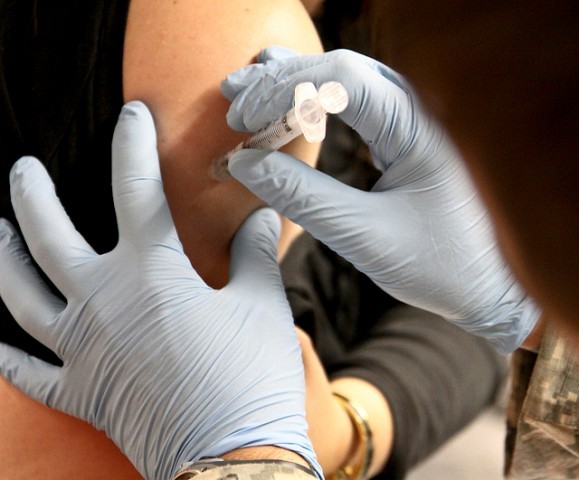Modified Measles Virus can Kill Cancer Cells: Study

Measles vaccine can destroy the cancer cells in multiple malignant tumors in the bone marrow, according to a study.
Recently, experts at the Mayo Clinic examined the application of virotherapy by using a modified form of measles virus that killed cancer cells without harming healthy cells and tissues in a woman with myeloma.
Myeloma is cancer that affects plasma cells in the bone marrow and soft tissues that can dangerously spread to most body parts. The treatment for the disease includes complex procedures like bone marrow transplants, radiation therapy along with drugs and medications. However, these cancers are not eliminated completely, according to the data by the American Cancer Society.
The study involved two patients, who were in the advanced stage of myeloma. They were give high intravenous doses (100 billion units) of an engineered measles plasma virus with a 'snitch gene' that detects the tumor growth and significantly reduces bone marrow cancer and myeloma protein. One participant - Stacy Erholtz, aged about 49 years from Perquot Lakes in Minnesota - was cleared off the cancer cells and remained disease free for more than six months. She was overwhelmed by the results within 36 hours after receiving the vaccine that was strong enough to immunize 10 million people for measles, reports the Washington Post.
"This is the first study to establish the feasibility of systemic oncolytic-virotherapy for disseminated cancer," said Stephen Russell, study author and Mayo Clinic hematologist.
"These patients were not responsive to other therapies and had experienced several recurrences of the disease," reports the Laboratory Equipment.
The second patient did not respond similarly to the treatment but her imaging scans revealed the intravenous vaccine targeted only cancer-affected areas, but the effects were not as quick as expected. The study authors believe in investigating further to find exact reasons why the anti-virus cancer worked differently in inhibiting tumor in the second participant.
"It's a landmark. We've known for a long time that we can give a virus intravenously and destroy metastatic cancer in mice. Nobody's shown that you can do that in people before," said Russell reports the Red Orbit News.
More information is available online in the journal Mayo Clinic Proceedings.
May 17, 2014 06:30 AM EDT





